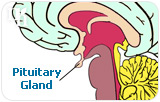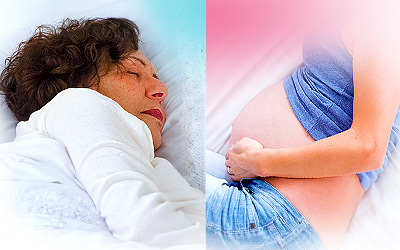
During perimenopause, estrogen and progesterone levels fall drastically - estrogen by as much as 90% over the first few years. During these transitional years, hormone levels fluctuate causing erratic, irregular periods, moodiness, and hot flashes which can cause disruptions to sleep, work, and overall quality of life.
Symptoms differ for every woman but one thing is certain - every woman wonders when they will end. The effect hormones have on the experience of menopause can differ greatly between women, from wreaking havoc to stabilizing symptoms. Read on to find out how hormones affect menopause for you.
How Do Hormones Affect me during Menopause?
A woman's natural hormones, that is to say, the hormones that are produced naturally in a woman's body, have many roles. Estrogen has roles as diverse as influencing the regulation of body temperature and maintaining vaginal lubrication; therefore, low estrogen levels during menopause can cause hot flashes and vaginal dryness. Progesterone works in conjunction with estrogen to stimulate bone growth and maintain strong bones, so an imbalance, deficiency, or depletion of either of these hormones can lead to osteoporosis.
For this reason, many women turn to hormone replacement therapy (HRT) to prolong the beneficial effects that these hormones have on the body. Keep reading to learn more about HRT.
Hormone Replacement Therapy for Menopausal Symptoms

Hormone replacement therapy (HRT) is commonly prescribed by doctors to “treat” the symptoms of menopause. It works by introducing external hormones into the body to regulate fluctuating levels of estrogen, progesterone, and testosterone. HRT can be effective in stabilizing hormone levels, but there are many associated risks and side effects.
If you're considering taking or if you're already using HRT, you may experience side effects that include:
- Tender breasts
- Cramping
- Bloating
Estrogen, progesterone, and testosterone can be replaced separately, via many different means such as pills, pellets, creams, rings, and patches. Changing the dosage or combination of hormones, the way they are administered or varying the timing of doses, may help control the side effects of hormone therapy.
However, this will not help decrease the risks involved. Studies have found that some women experience serious risks such as an increased chance of a stroke, cardiovascular disease, blood clots, and breast cancer when using HRT. Also, women over the age of 65 should be cautious because the chances of developing dementia increase after beginning HRT.
HRT can be an effective and valid treatment for some women; however, it is important to weigh up the benefits against the risks. There is no one-size-fits-all treatment to cure the symptoms of menopause; instead there are a variety of treatments available, so there will be an ideal treatment option for every woman.


